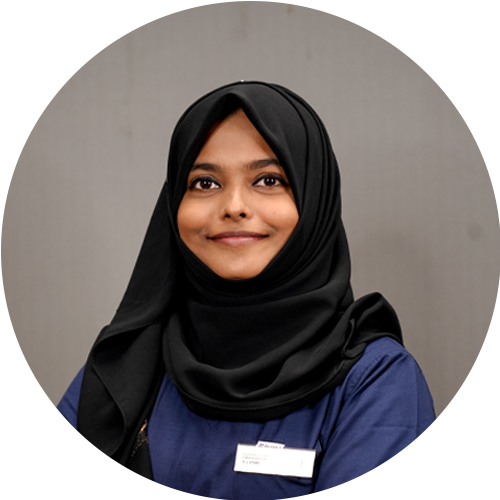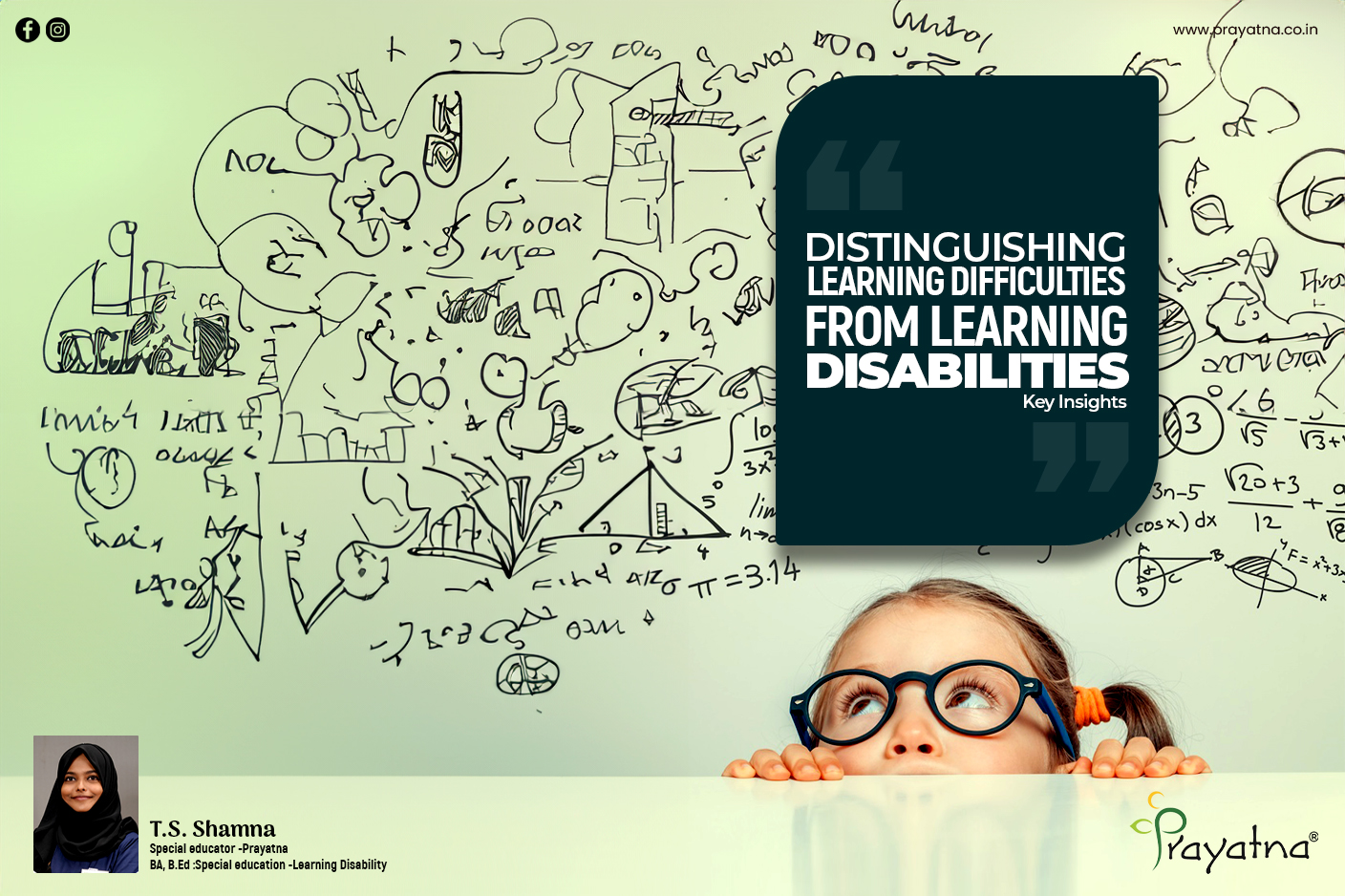
Written By
T.S. Shamna
Special educator
BA, B.Ed :Special education -Learning Disability
Learning is a high cognitive skill which involves acquiring knowledge through many mediums like Reading books, schooling, environment, newspaper, social media, communication and interaction with the society. Most of the children may show some difficulty in acquiring and processing the information.
Some children might benefit from extra support to help them succeed. Parents nurture their children’s potential by encouraging a positive learning environment. In a regular classroom setting, a child will experience many issues- commonly diagnosed are Learning disability and Learning difficulty. So how can we define or understand what the child is experiencing ? Both the terms have a particular meaning and their difference is the effect of the condition on intellectuality.
LEARNING DISABILITY V/S LEARNING DIFFICULTY
Learning Disabilities affect a child’s ability mainly in
- Academics
- Social
- Communication
- Behavioral skills
Someone with Specific Learning Disabilities such as dyslexia, dysgraphia, dyspraxia, NVLD they all need special assistance and sometimes assistive devices are needed for achieving the goal. It is a lifelong condition that starts before adulthood. People with learning disabilities can often have trouble retaining information, which can include their name, age, address, or important medical details. Supporting them through these challenges can sometimes include providing them with written details they can use to refer to the information they need when they need it.
Learning difficulties do not impact overall intelligence; rather, they can make it harder for someone to acquire or understand information effectively.A learning difficulty usually presents in childhood and can cause a person to experience problems in a traditional classroom setting.
HOW LEARNING DISABILITY AND DIFFICULTY IS DIAGNOSED
Once caregivers or teachers suspect Learning issues in school, your child will go through with special assessments and tests done by professionals, pediatricians, and psychologists involved in the process.
- Medical, cognitive, psychological evaluation
- Medical and family history.
- School reports.
WAYS TO SUPPORT THEIR LEARNING PROGRESS
After receiving the diagnosis and ideas from a multidisciplinary team, including the parents, educators, Psychologists, Special education services, Healthcare providers, like occupational and physical therapists are important for developing the Individualised Education Programme (IEP) which meets the needs of a child which develops the best plan.
- Repeated practice
- Remediation
- Acquiring knowledge according to the person’s learning styles
- Use of differential instructions for presenting information
- Providing extra time to understand and complete a task.
Individualized accommodations are meant to support each child’s unique learning needs, ensuring they have equal opportunities to succeed without being unfairly labeled or compared to others. These adjustments empower students by meeting them where they are, not giving them an advantage but fostering growth and understanding.
As described above, a learning difficulty does not affect general intelligence, whereas a learning disability is linked to an overall cognitive impairment. It is possible for a person to have both a learning disability and a learning difficulty. Learning disability and learning difficulty need to be diagnosed and provide proper support and assistance according to the child’s needs for academic progress.

